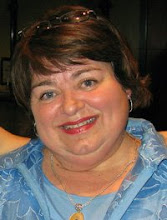
September 11, 2001, was a brilliant, breezy, fall day in Jurmala, Latvia, much as it was in New York City that day. I was working at my home in Jurmala that afternoon in my tiny, sun-drenched living room, and had thrown open all the windows to take full advantage of the beautiful weather. I was feeling lighthearted, and when my cell phone rang just before 4:30 p.m., I was happy to see the name of my good friend, Marika Bertule, on the phone’s tiny screen. My delighted quickly turned to shock and disbelief when, without any preliminary pleasantries she said in her near-flawless English, “Betsy, World Trade Center in New York and Pentagon have been attacked.”
Like so many in America and around the world that day, my brain was frozen by that momentary suspension of understanding that we all experience when we learn something that is too strange or too terrible to grasp. As I struggled to process the information, I remembering thinking, “World Trade Center—accident? Terrorism? But the Pentagon—impossible. It’s impregnable.” I was not accounting for large jetliners flown by suicide bombers motivated by hatred.
I had no TV, and, desperate for more information, instantly began searching for the only English language news available, the BBC. Their coverage was as confused as my thoughts, as the story was still breaking. I began calling my American friends in Jurmala, but all circuits were busy. My mind raced with nervous thoughts of friends who work in New York and at, or near, the Pentagon. I feared for the White House and Capitol.
That day I learned what a helpless and surreal feeling it is to be 8,000 miles from home at a time of national disaster. The hardest part of living abroad for me had always been the sense of being cut off from the national life of America, and never more than that day. It felt like a close relative had died and I could not be present to mourn with, comfort, or aid my surviving kinsmen. There’s nothing I could have done to help even if I had been stateside, but I felt a deep need to be there, to share this nightmare with my countrymen.
But even so far away, I did not feel alone in my grief. As soon as busy circuits would allow, and for days afterwards, I received calls from my Latvian and Russian friends offering heartfelt condolences and pledging prayers for my nation. Anna Jauce, my dear friend and boss from the Jurmala Language Centre where I taught English, knew that I did not have television and invited me to come to her house for the evening and watch CNN and Fox News coverage with her and her husband, Viesturs. She even invited me to spend the night if I wanted to watch the unfolding drama with them deep into the night, or if I just didn’t want to be alone. She wept with me.
At our mission church that Sunday, our Russian associate pastor insisted that we have a special prayer and memorial service within our regular weekly worship. He and others took the microphone to share impromptu what America had meant in their lives, the hope she gave them during the Soviet years, and their present gratitude for us and other American missionaries who, as they said, had left the comforts of the richest nation on earth to bring them Christ’s message of redemption that had changed their lives forever. By this time in our association with each other, many of them had visited the U.S. and knew whereof they spoke.
A few days later, I drove to the nearby capital, Riga, to visit the American Embassy. With the stepped-up security, it wasn’t possible to walk on the same side of the street as the embassy building, and there was a larger-than-usual contingent of Marine guards. But across the street, stretching for several blocks in either direction, was a beautiful display of solidarity with grief-stricken Americans around the world. Along those blocks in the space between the curb and the sidewalk, tied to parking meters and against close-standing trees were thousands of candles, teddy bears, handwritten prayers, letters and signs in Russian, Latvian, broken English, and many other languages, and other creative condolences. The air was fragrant with the scent of innumerable bouquets of flowers and single roses. They were left by businessmen, mothers pushing strollers, university students, tourists, and school children. As I stood at this sacred spot weeping with grief and gratitude, more than one passerby, assuming that I was American, stopped to simply say, “I’m sorry.”
As I attempted to photograph the embassy with flag at half mast and the wonderful memorial before it, one of the Marine guards came across the street and politely but firmly informed me that photographing the embassy was not allowed. Perhaps because he realized I was an American citizen, however, he did not ask me to delete the photos I had already taken. I remain grateful to him for that. Today, although they are temporarily in a storage crate in Atlanta, I have those wonderful photos to remind me that tragedy brings out people’s best as well as their worst, and that America truly does have friends around the world.








I'm sorry I had to be one to bring you these terrible news. I still remember the shock I had that day - the unbelief in what I was hearing on radio, the hope that it's one huge mistake and sorrow and tears, watching the BBC and other news channels. I haven't been able to watch movies and documentaries about what happened then, it is just too much for me for some reason. Wish it would never happened. Wish those people who did it would understand what they did and repent, that would be enough.
ReplyDelete